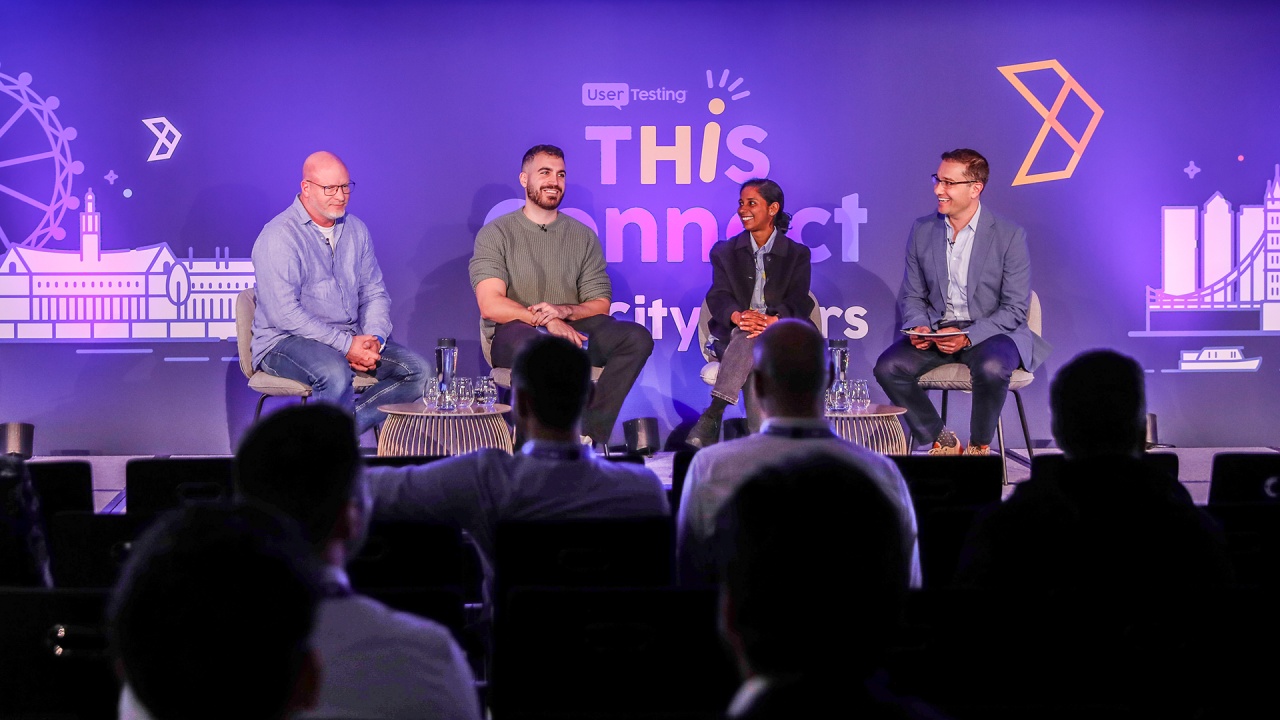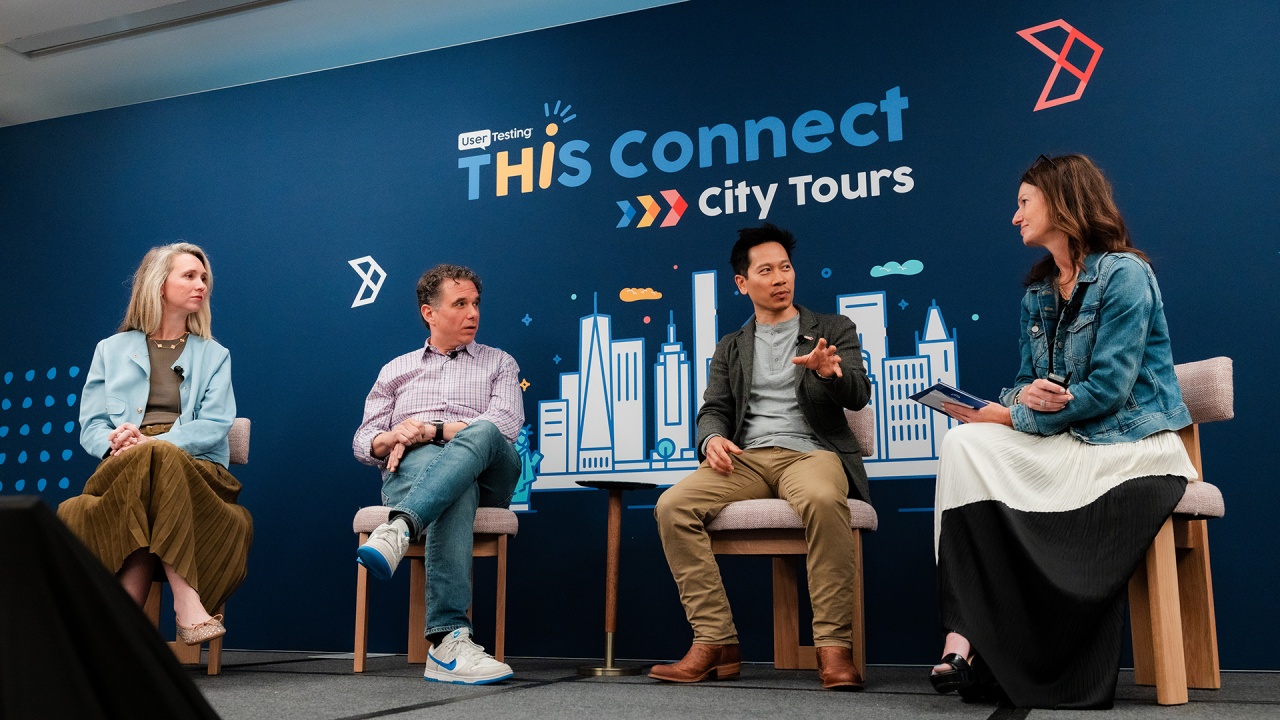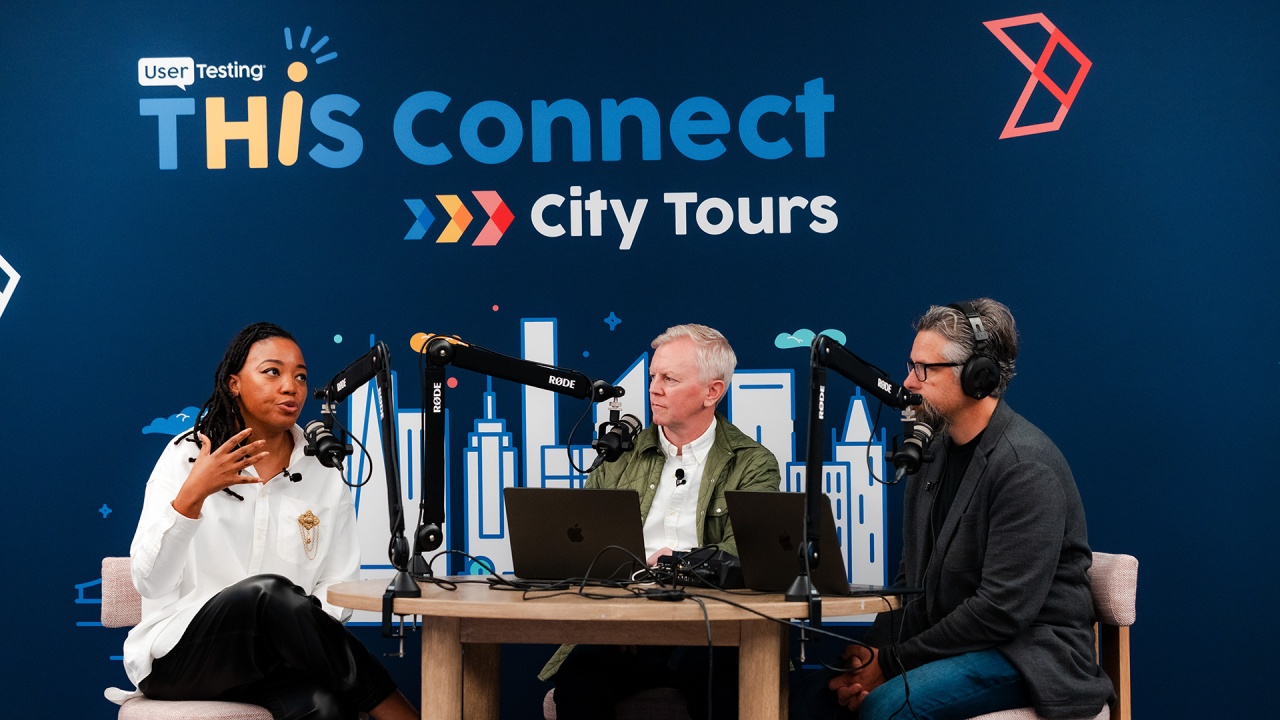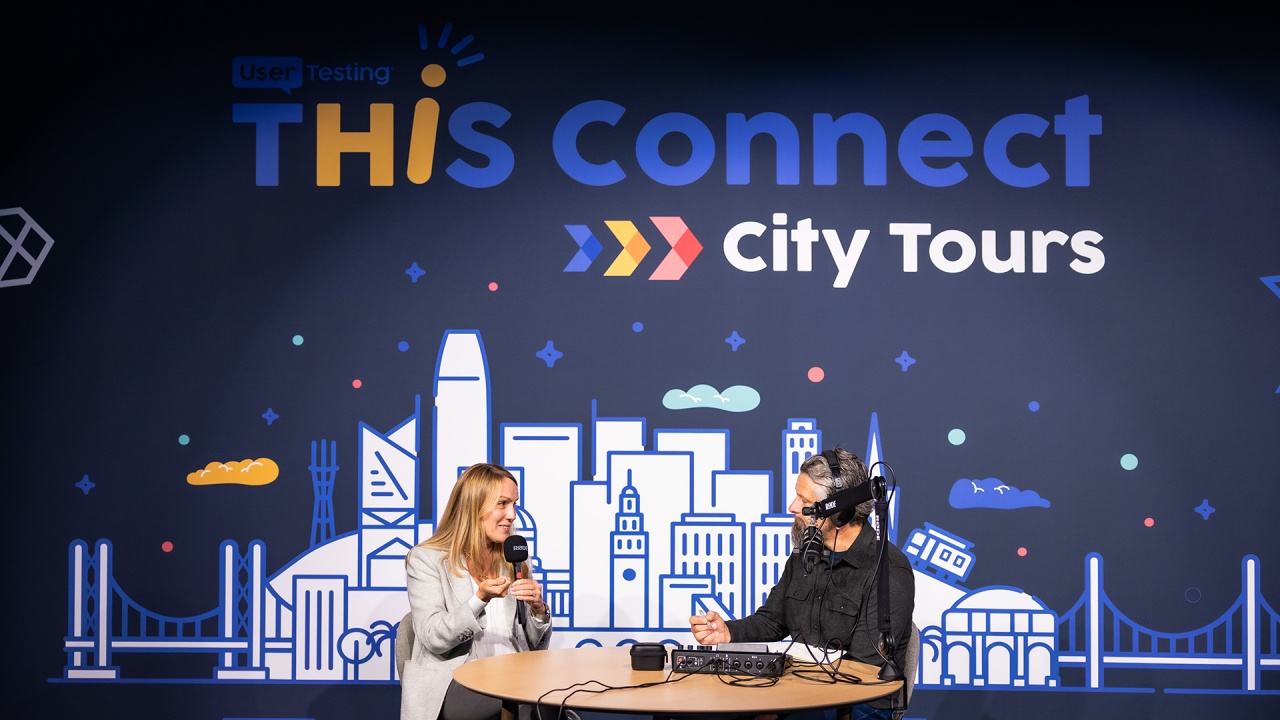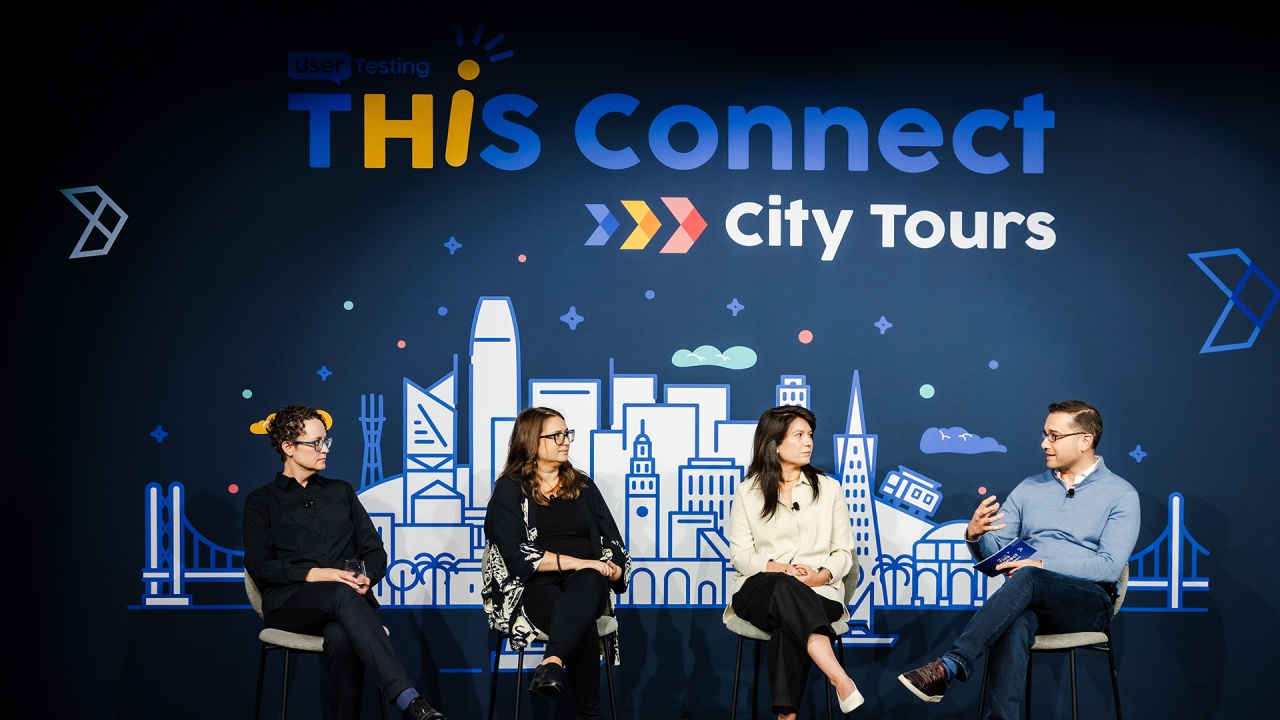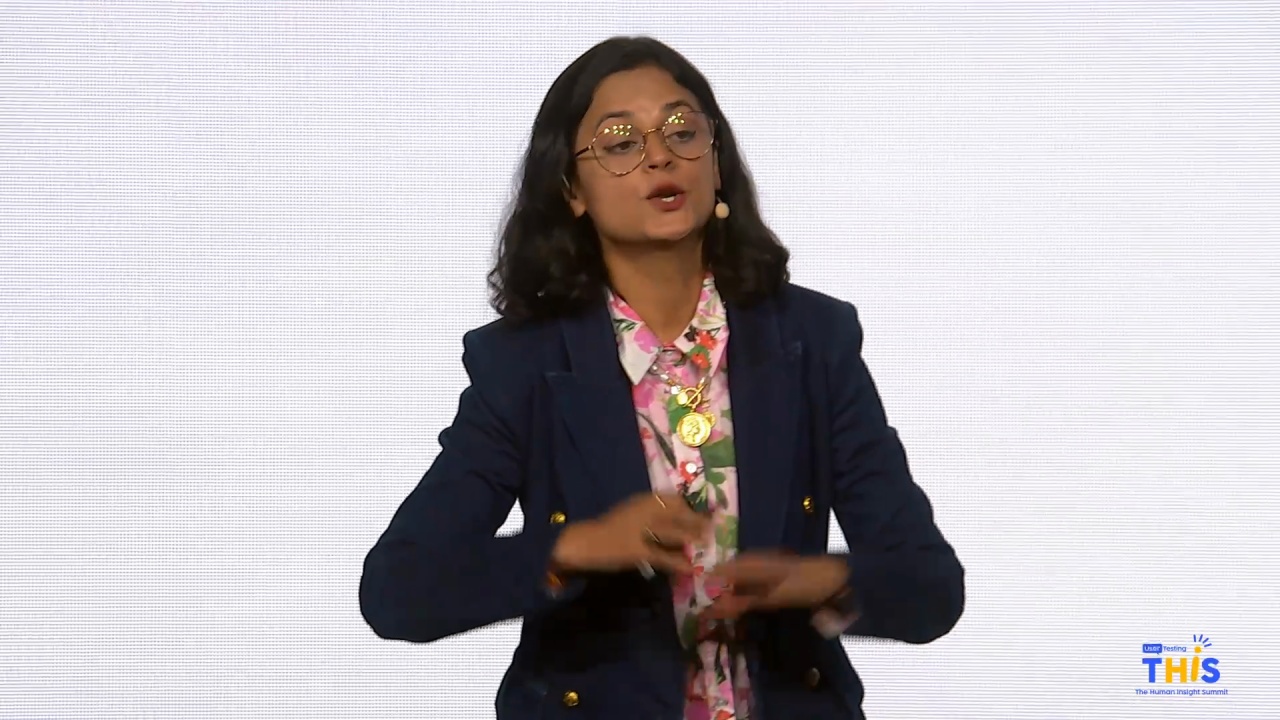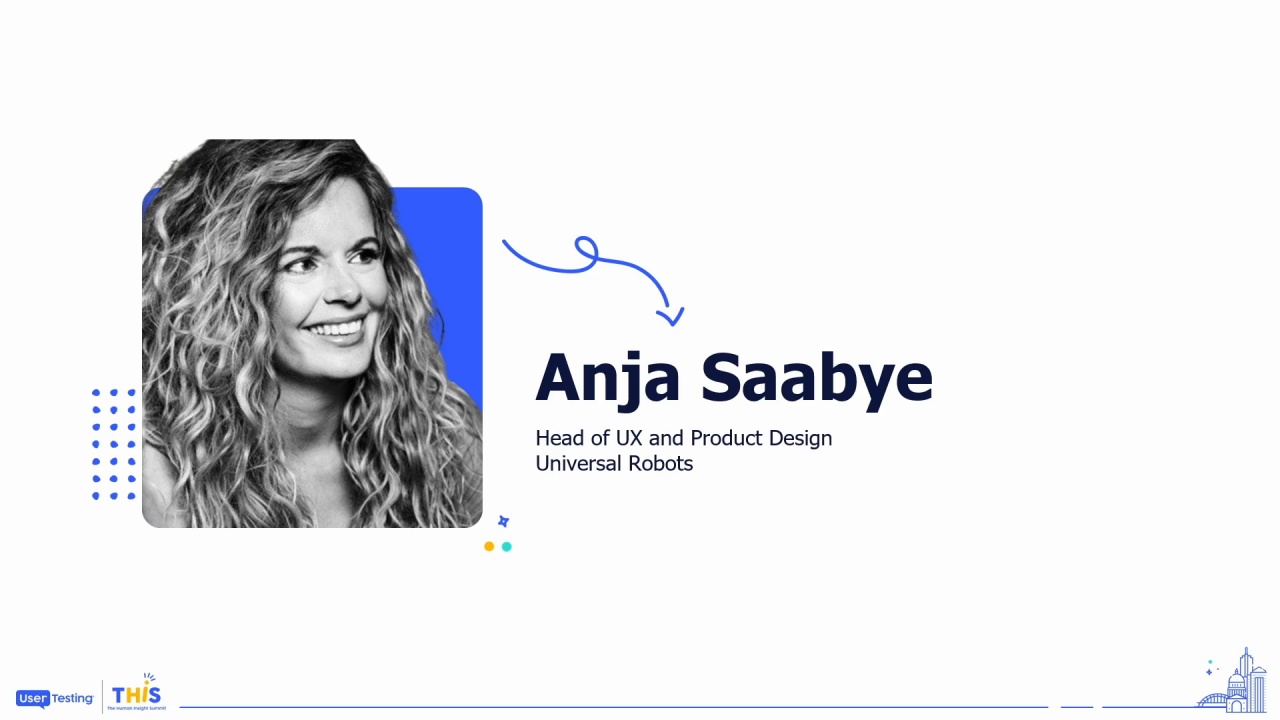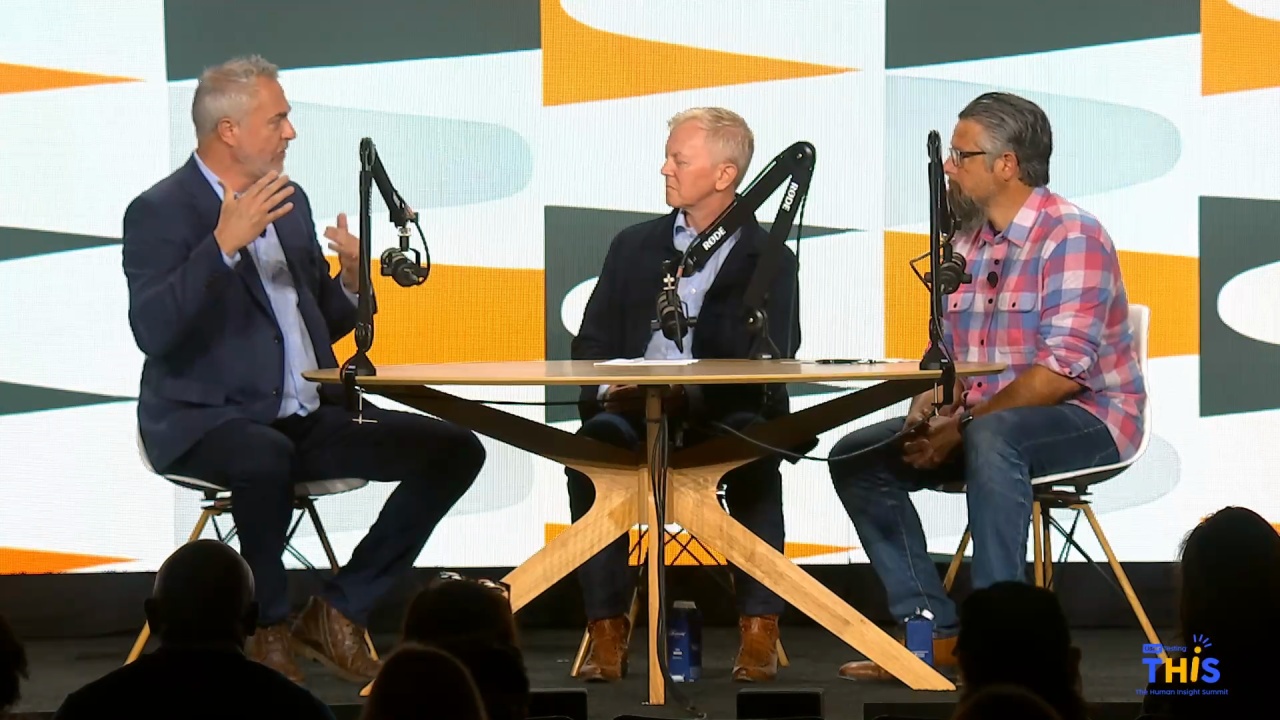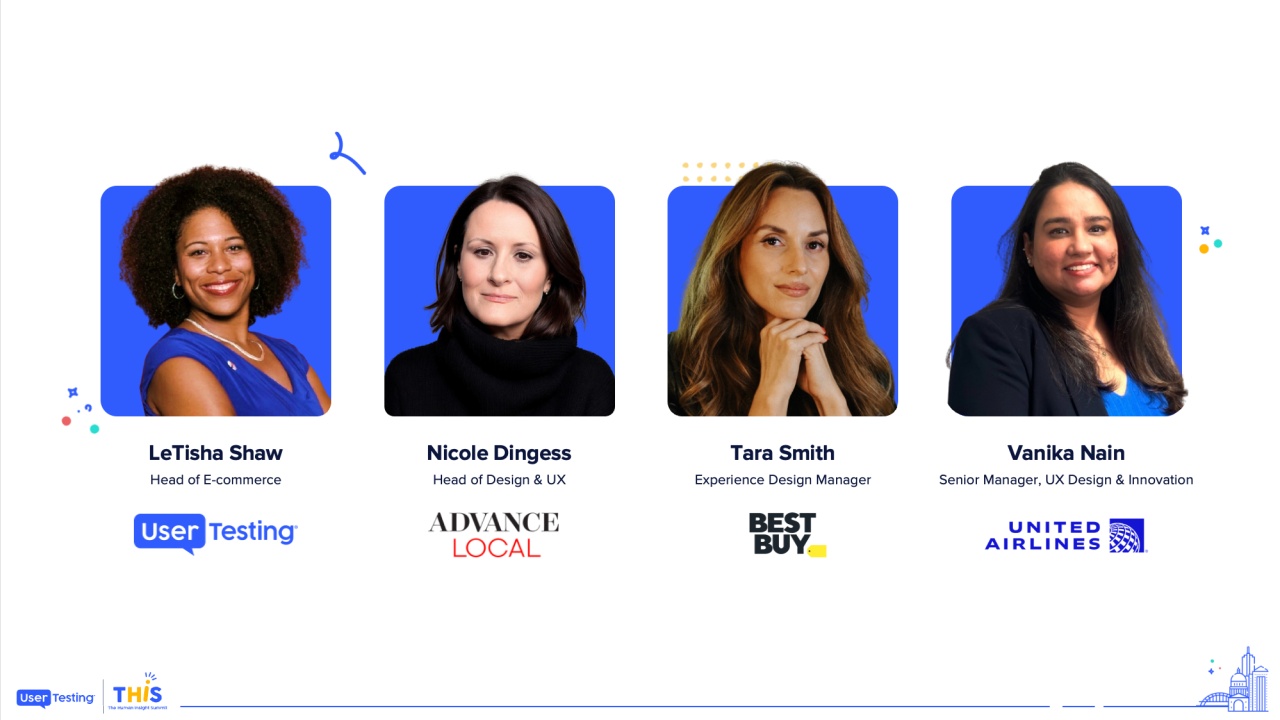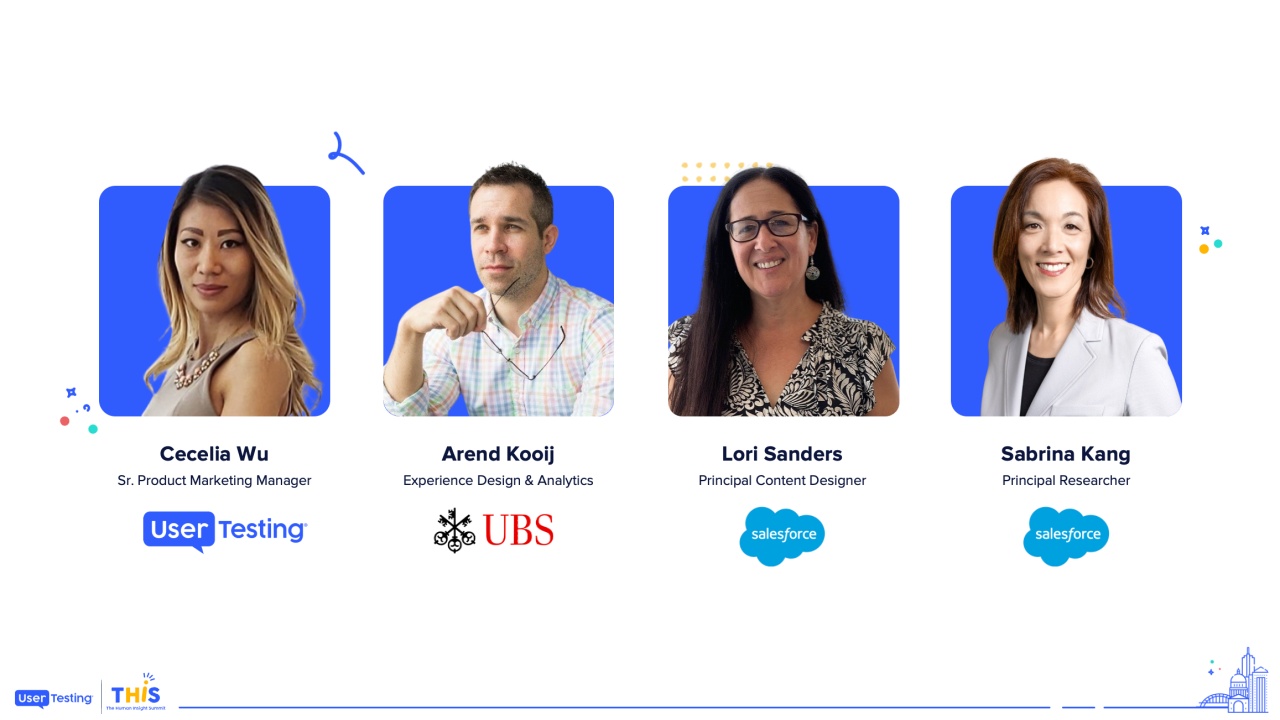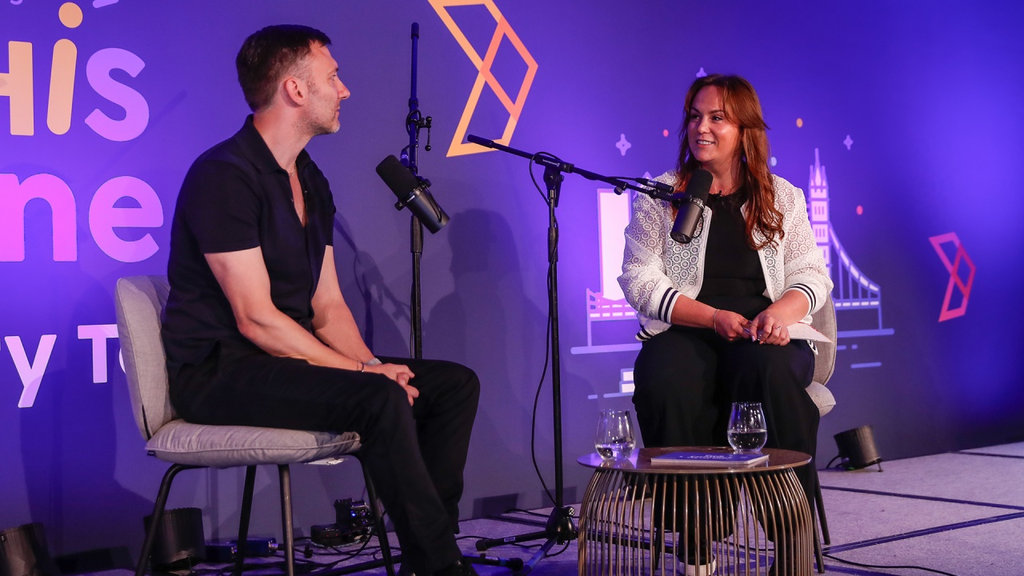
Live taping of the Braw Tech Podcast
Amy Kelly
Host, The Braw Tech Podcast
Roan Lavery
CEO, FreeAgent
In this special live taping of The Braw Tech Podcast, we sit down with Roan Lavery, CEO and Founder of FreeAgent, the award-winning, user-centric accounting software based in Edinburgh. He’ll share how his product design roots continue to shape FreeAgent’s customer-first approach—and what he’s learned along the way about scaling, solving, and staying focused on what matters.
Please join me in welcoming Amy at Rome to the stage.
All my ex colleagues and everyone here today. It's so, so cool. And, hopefully, from the trailer, you can get a bit of a taste of what it is that we're building. I obviously cannot take any credit for how good that looks.
That is Louise Mather over there and Jamie over there who make it look and sound so good. But we ultimately started the podcast because whenever you ask someone, you know, what do you think of when you think of Scotland? Nobody says tech. Everyone says...
Please join me in welcoming Amy at Rome to the stage.
All my ex colleagues and everyone here today. It's so, so cool. And, hopefully, from the trailer, you can get a bit of a taste of what it is that we're building. I obviously cannot take any credit for how good that looks.
That is Louise Mather over there and Jamie over there who make it look and sound so good. But we ultimately started the podcast because whenever you ask someone, you know, what do you think of when you think of Scotland? Nobody says tech. Everyone says bagpipe, haggis or something like that.
So we wanted to go on a mission to change that and just shine a light on So we thought, let's go on this mission. Let's tell these stories globally. So we have actually been, engaged with over a million people so far worldwide. Our top top markets are actually UK and the US are engaging in the content, which is really nice because we are a very new podcast.
So with that said, a huge thank you to user testing for giving us this platform today to actually bring the BroTech down to London. You know? So Rowan actually came down for four hours Mhmm. For and is flying straight back up to Edinburgh. So we've both come down from Edinburgh, but we're really, really excited to be here. So this is actually a bit of a full circle moment because, you know, I said, like, I was the first master here in EMEA, back in July twenty nineteen when we're launching here in, in the UK and Europe. And Rowan was actually our first guest at our first event in Edinburgh.
So it is really exciting. It's awesome. And so thank you so much for being here, Ron. How are you?
I'm very well.
Yes.
It's been an early, early morning for me, but it's good it's good to be here.
Amazing. Well, thank you so much for taking the time, and we are recording this live. This will go on our channels, and we will be posting posting this as a podcast. So if you wanna get in front of Louise at some point when she's going with the camera, then you'll be on our podcast.
So so great. So let's just jump in and, just first for everyone to get to know you a little bit. Before you were the CEO of FreeAgent, a little bit of background on your own, please.
Yeah. I mean, so I've had a pretty odd career, I guess. You know, if I go back to even before I got into tech, I was a scientist. I did a I did a PhD in condensed matter of physics, and then decided I didn't wanna do that. I wanted to become a designer instead. So it was a little bit of a pivot there, a career change.
But I think for me, it was a kind of made this realization. I wanted to do something that was, I could be part of a team and I could build something that was gonna have an impact, and I could see that impact. And it was actually, you know, quite difficult to do that as a scientist working in a very sort of, like, niche specific field. And so and around the sort of, like, millennium, like, two thousand, which is a really interesting time, in the Internet.
Obviously, it was just around the sort of, like, the the burst of the first first sort of dot com bubble, but there was still a huge amount of momentum in the industry at that point. There was a lot of exciting things happened, and that's really when I sort of transitioned into, I guess, well, being a web designer. That's what it was called, you know, quite an antiquated term so these days, but it was the the good old days of HTML and CSS and Photoshop. Used to Photoshop is what used to design websites and, like, back then and then Flash and Dreamweaver and all those types of things.
And so I worked for, like, a small, agency, the training and and web design. I I think I was there for a while ago about seven years, and that's really where I learned my craft as a web designer. You know, the front end development, I'm in the sort of design, and increasingly sort of where I think my passion sort of moved towards was into UX, what became known as user experience.
And so I got really into that and around the mid two thousands you could see there was a shift in industry where it was no longer just people designing websites, web applications were also becoming a possibility. You know, things like the, broadband had gotten good enough so that you could deliver fairly complex web applications over a browser. Browsers were becoming more sophisticated.
You had these frameworks like Ruby on Rails, which is what FreeAgent is still built in today, which were starting to become viable so that you can build these quite complex applications. So that was something that around that time I became really interested in, and then myself and other two cofounders of FreeAgent back in two thousand six, two thousand seven, we met and we just sort of, like, came together with the idea of of creating FreeAgent because we were set ourselves were working as either freelancers or contractors or consultants. So just we were also like one person to my businesses. I was doing freelancing on the side. The other two guys were working as contractors, as programmers in London, actually.
And so, you know, we would thought about, okay, We need something that would help us manage our own finances, so we set up a building free agent. And then, the idea was that, well, you know, we find it useful, then maybe other people will find it useful as well. So we started on down that path. And then the first you know, the early days for me, it was all about being a designer. I designed and built the front end of the of the web app. And then over time, I sort of like, as the company grew and scaled, I transitioned into more of a product role.
And then, like, eventually, I was I was a CPO of the organization at that point. And in twenty twenty one, Ed, who was a previously, he was a CEO, he stepped down, and that's when I moved into that CEO role. And I've been there for, like, four four years now.
Amazing. Honestly, when I think back to three years ago when I left UT, I basically thought I'll start my own business. And the worst thing about running your own business is the finances. Yeah. Genuinely, I can't get my head around it. I genuinely can't. But, can you tell us a little bit more about free agent and how it works and, you know, what is the core problem that you're solving in a different sort of way?
Yeah. So, I mean, so we're online accounting for for small businesses. Originally, we started off, and it was very much, geared towards freelancers and one person, businesses. Nowadays, we're can we broaden out the appeal of the the product a little bit, so we, you know, cater to more of the small business market.
We sort of, like, talk about our four main high level jobs to be done, and that's helping people sort of, nail the daily admin, be better at business, relax about tax, and connect their finances. And they're the highest level sort of, like, jobs to be done that we're essentially trying to meet with the product. And then it goes down to all the, like, the things like invoicing expenses, taxes, accounts, all of that complicated boring stuff that people are scared of. But fundamentally, we try and tie it back to, like, what are the the main things that people are trying to achieve in our business.
And when we're talking about customers and, you know, being at the user testing conference today, so many people that are in the product design UX world, It would be great just to hear a little bit about how you're keeping the customers at the center of that build, you know, thinking back to the beginning, but then all through this evolution. Because it's been well, how many years has it been?
So in two thousand seven, the company has formed for eighteen years, and, obviously, the company's grown, quite substantially in a time from the three cofounders to, you know, nearly three hundred people today. I think what I would say about that is I think that essentially is probably one of the most difficult challenges that a business faces as you grow and scale is how do you maintain that real customer focus as you grow your organization. Because when you're a small company, like, you know, three, but even, like, ten people, twenty people, it's almost like inherent in the business that everybody in some way is customer focused because you're either speaking to customers on a sort of frequent basis or you're sat next to somebody who is or you're talking to them at lunch, and everybody in that early phase of the organization tends to be quite mission orientated.
You know, they're joining an early stage start up because partly because they believe in the mission of what you're doing, which hopefully is to help customers in some way. I think what I've definitely observed is as a company grows and scales, people's motivations for joining your business change a little bit. That's not a bad thing. It's inevitable, but people join a company that's larger or more mature for reasons like, you know, they've heard it's a good company to work for, it's got a great company culture, it's got it pays well, it's secure, and they they they can master their craft and they can invest their in their craft and their own career progression.
And they're not bad things at all, but you can't lose sight of that other aspect, which is like, okay, but all of that good stuff, how are we doing that in service of the business and in service of our customers? And so that is really one of the big challenges you have is, like, how can you support all those other motivations that people have when they join your org, but at the same time not drift so far away that you lose the ultimate sight of the mission and the purpose of the business? And, you know, I think there's a bunch of ways, you know, obviously, we've talked a lot about some of those ways, already sort of like today.
I'd I'd maybe just highlight a couple of things which I think are really important. And essentially, it's all about trying to elevate the voice of the customer within your organization as much as you can, and that means trying to elevate the voices of people within your organization who talk to customers as much as possible. Now clearly, like that user researchers is one of that, and I think there's a lot of ways in which you can amplify the voice of user research across your organization. A couple of things that we do, all the user, testing sessions that we run, anybody from the organization can drop in those and just listen in and they can sort of hear what's going on, and we'll regularly do sort of video playback of insights that we've had to the entire organization.
So we do our company all hands meeting on a Friday afternoon. I'm sure, you know, most folks do us a variation on that, and we will regularly begin sort of, like, insights we've got from those testing sessions and play them to the whole business just to remind everybody that, you know, here's something that we've learned. But I think the other thing is that, you know, there are people in your organization that talk to customers all the time, like your support team. There's probably nobody else in your organization that talks to as many customers as your support team.
You know, our support agents will talk to dozens of customers every single day.
Most user researchers don't talk to that many customers. Right? And they get incredible valuable insight into certain aspects of the customer experience. It's not in every aspect, but certain aspects.
And so one of the things that we do is we, really try and foster and formalize the relationships between design and product and support. So we have regular meetings between our support team, and we have dedicated people who do this within support, and our product managers and our product designers as well. And there's really a sort of two way conversation. Partly, it's about the support team saying, hey, listen.
We've heard about this thing from customers. Everybody's banging on about this thing. It's a nightmare. They find it really difficult.
They're getting frustrated about it. And likewise, the the product side of the org can say, well, we're thinking about building this. What do you think about that? Do you think that would solve the problems that that customers are are talking to you about?
And so trying to sort of, like, build those relationships between that's really important. And we do a similar thing with sales. So sales are another sort of, like, part of the org, that's always out there by talking to customers. So that's simply we have that similar sort of dynamic.
So I think that is one of the things which I think is is sometimes overlooked is there's not often those great relationships between product and design and customer support or with or with sales, and we worked really hard to sort of, like, I guess, break down those barriers.
Yeah. Getting out of those silos is so important if you're actually wanting to tie everyone into the voice of the customer. Whenever compared to people who are like, no, this is specifically my job. This is exactly what I do. I don't do anything else. Whereas Yeah. Having that alignment and just, like, shared vision of it, obviously, we just must make such difference.
Yeah. Absolutely. Yeah. I think yeah. It's it's realizing that everybody is working towards the same goal ultimately, and even though people may have different priorities or, you know, KPIs that they're gonna be measured against, is trying to break that down and just realize what we're all here to help customers at the end of the day.
And going from product designer to CEO, that's a bit different. You know? So I think in terms of, you know, that just that, you know, specialism that you know you're focused on that, when you get to see you you are running a business, it's all business that, you know, vision, objectives, making the money, hitting the targets. What's that been like for you, Rowan?
Yeah. I mean, it didn't seem particularly weird to me. I mean, bear in mind, like, that that that journey is mirrored by we went from three people in the org, and I was, like, you know, building, like, HTML and CSS, like, web app pages, and to quite a large company with, like, hundreds of people in it. And so but I think, ultimately, having that, you know, passion for customers, I I really believe in what the mission of of the business was.
And I really believe in, things like, you know, design thinking, about user centricity. You know you know, those are concepts to me that as I sort of matured in my own career, I just wanted to sort of like broaden the impact of stuff that I want to have, and I think that that's a really sort of one of the important things that I think is crucial about our career trajectory where most people go on is that essentially as they get more senior in their careers, they want to have more leverage, so they want to have a bigger impact. And for me, that was like going from, okay, well, I can, you know, do a really good job of designing this particular feature or this workflow to, like, well, deciding on what type of features and workflows we would do as a company to deciding what the overall product strategy is to deciding what the company strategy is.
And so it was just a natural evolution of taking the things I really, really cared about but just applying them to a bigger sphere of influence. And that's the sort of the advice that I try and give everybody in my organization that, you know, as you mature in your career, you should be looking to have more leverage in your role. You should be looking to have a bigger sphere of influence, whether that's just, you know, maybe within the design org, you're doing work that shapes the future direction of the business because you brought in some crucial insight that's gonna unlock a new strategic path or a new market or a new opportunity or something like that.
So it's it's constantly trying to, like, push out that ambition.
And what about any big mistakes?
Yeah.
Have you made any over the the seventeen years?
Any big big ones you wanna share?
Yeah. It's just funny because people people always ask this question. It's like, you know, we've got a relatively successful business, and nobody's like I know.
I just want the bad news. Come on.
What what was the worst mistake?
I mean, why would you bitterly regret it?
I think well, I think maybe I'll answer it back to front in terms of, like, what were the awareness? Because I think somebody's in that last session that we had talked about this idea about one way and so, like, two way doors, and that's a really, really interesting concept. I'm not sure if everybody's aware of it. I think it was originally came from Amazon.
And the idea that, you know, we you know, most of us here, right, we build software. We're not doing brain surgery. Okay? If we make a mistake, we get it wrong, it doesn't really matter a lot of the time.
Okay? And that's the thing. I think within organizations, we we spend a disproportionate amount of time worrying about stuff that doesn't really matter. Like, you launch a feature and it maybe doesn't get the engagement that you want or you do a marketing campaign and it doesn't land as well or you don't recharge.
It's not the end of the world, man. So it's fine. You just rework it. You know?
You iterate it. You tweak it. You try something different. Okay?
And, you know, most things most decisions that you make, most things that happen in your organization fall into that category where it's like, you know, you actually probably spend more time worrying about them than just doing them and then iterating on it. And we call those things two way doors because you can go through and you can just come back. The alternative is that there are some things that are one way doors, and there are some decisions that you make that once you've gone through that, it is very difficult to come back or impossible to come back.
And the trick in being a leader is to understand what is a one way door and what's a a two way door, and worry less about the two way doors and probably worry more about the one way doors. Right? So when we talk about big mistakes, it's those things that when you've done it, that's it. Yeah. In my experience, those things tend to be something where you sign something. Right?
So it's a It was a contract.
It's a contract or it's an investment deal, maybe even some hiring decisions. They are the things that if you make those things, it's very, very difficult to back out. In every case of free agent, relatively early on in our sort of trajectory, we took some investment. It was quite a large amount of money for us at the time, not by today's standards. We took a little bit of investment money, but this was with a large software distribution company who, basically, operated in the target market that we were going after, the the accountancy, market.
And they had years, decades of experience of selling into that market. And as part of this deal, it was an investment deal. They were gonna have exclusive rights to sell our software into that market, and that seemed like a win win. We would get the money, but we would also have this great distribution channel, people who had, you know, dozens of salespeople who had years of experience of selling into this market.
But the problem was, this was sort of like maybe twenty ten, something like that, they'd never sold SaaS software before. They were a desktop software company. And as an organization, they just couldn't wrap their heads around it at that point. It just didn't fit their model of sales, and so it just didn't work.
But we'd signed this exclusivity deal, which was three years. And so we basically had to sort of, like, sit on our hands for three years while we could see the market taking off and all of our competitors were coming into it, and we just couldn't really do anything about it. When those three years were up, then we could actually start doing it ourselves and doing it properly. But that was one of these things where we just didn't we didn't think about, like, okay, what happens if this was wrong?
Because we were just, oh, yeah. This is great. This is gonna be fantastic. That was a one way door we can we can come back off.
Oh, gosh. That's a bit heartbreaking, isn't it?
Well, I mean, it's like, you know, we managed. We survived, you know, but it's it's one of these things. It just it is just that lesson of thinking, okay. I think somebody mentioned it, like, pre mortem idea of, like, okay. What could go wrong with this, and what could we have done differently, which is I thought maybe we had some break points based on, you know, performance of the of the partnership or something like that. It would have been a way we could have even mitigated that.
So one of our biggest audiences are tech founders. Mhmm. You know, all over the world, we get really nice messages from people that have listened to some of the episodes and actually learn specific things that they've brought into their business. We've also had really nice messages from people that have been inspired to start businesses, which is great. But, you know, so I think it's, it'd be lovely just to share some advice with any fellow founders that would be watching. Hello.
When we publish this, so it'd be great to get, get some advice from you, Ron.
Yeah. I think, so this is maybe a little bit of a different piece of advice, and I think this one is more relevant for founding teams.
So if there's, like, you know, two, three, four founders or however many it is, and, you know, at free agents, I I mentioned, none of the cofounders knew each other before we started the business. A guy was literally introduced to Ed because he was looking for a designer. We met our CTO, a tech conference down in London.
And so we didn't know each other. Right? So there's one risk of that is you're gonna hate each other, and believe me, there were points where we may be dead. Right?
But I think the most important thing is that early on as a founding team, you need to have a conversation about why are you doing this and what are you hoping to get out of this sort of endeavor that you're going on. Because a a lot of this of, focus and energy in those early days is on building the product. Right? Oh, you get a cool thing, we're gonna get out there, get to market, do the be whatever it is, and there's a lot of focus on that. And, you know, understandably, there's maybe not as much focus on what is the long term aspirations in this.
And so I think it's really important that you have that conversation early on, and I think it's really important that you check-in on, like, a yearly basis on that conversation as well. So just make sure you you sort of say, right. Okay. We said we were doing it for this reason.
This is where we thought it was gonna go, and there may be loads of different reasons. You might, you know, you might wanna build a lifestyle business. You might wanna just, like, build something, scale it rapidly, and sell it as quickly as you can. You might just wanna, like, you might wanna run a small company, you might wanna run a big company.
And the crucial thing about that is that sometimes people's views in this change. You know, over the fifteen, eighteen years that we were together as cofounders, you know, I had, like, three kids, all the cofounders that you have different phases in your life and your personal life impacts what you want out of your professional life. If you know when you're, you know, maybe single and don't have any kids, you're prepared to take more risks, you're good take more chances, but then when you've got, you know, a family depending on you, you're like, actually, you know, I mean, I probably have to think about this a little bit more carefully.
And so it's really important that you're able to sort of, like, check back in with each other as you go on and say, right. Listen. Do we all still want the same things here? And if you do, then that's great.
Then you're just gonna, like, you know, it's plan a. If you don't, then, you know, you need to think about what their terms are. So I think making sure you're talking about the the overall aspirations as a as a as a business.
So one of the things that we always ask our, and thank you for all that great advice. I think that's really, really important. The cofounder discussions, super, super important. But, one of the things that we do always ask our guests on the Broadtech podcast is to give a shout out to someone somewhere else in the world so that we can take ourselves out of Scotland, which we obviously has done physically today, which is really nice. But we would, yeah, just like to see who your shout is for.
So I think mine would probably be, a guy called Christophe Jans.
So Christophe, was a very successful founder, of a e commerce business in in Europe and Germany in, like, the nineties, like, literally the mid nineties, like proper OG in terms of, engineer entrepreneur. And he exited that. I think it was in in the late nineties then sort of became an angel investor.
He was our first ever angel investor back in, like, so by two thousand nine. He also invested in Zendesk, which I'm sure, many of you know as well, around the same time. So he did he did considerable of the Zendesk deal with the end of everyone, but that's fine.
And then he then went on to found, Point Nine Capital, which is a a VC firm, based in in Berlin. And so, you know, he was a a brilliant founder. He was a board member of ours for for many, many years, and just a really great adviser as well because he'd been in the trenches. He knew about sort of tech, and he was able to, you know, bring that to us to to, like, advise us on that early part of the journey. And now he'd you know, he's obviously scaled that significantly to to many, you know, other, companies and businesses around the world. So, yeah, that'd be a big question, I'd like.
Thank you so much, Ron. So the last question I have for you is if you had one word to sum up your founder journey, and I know in the VT, actually, Jamie Anderson did take about five or six words, but you just get one. Sorry, Rowan. Okay.
I get I get I get motives. Explain why. This the word would be transformational. Oh. What was the word?
Yeah. Explain why. Yeah.
Wasn't you how strict one of our founders?
I I think it's because, I always say that, so being a founder is this incredible privilege, and it's not something that I take lightly at all. Because if you're a founder that has the privilege of going on this journey that that I went on of going from like this little scrappy side hustle to like a big company, You have the opportunity to be part of this learning experience that, you know, ninety nine percent of the population will never go on. And that can be an incredibly demanding journey, it will ask a lot of you, and it will test you a lot, but if you're able to sort of like stick with it, the growth opportunities for you personally are just I I would say they're unparalleled.
Like, you know, the experiences that I've had around growing a business, doing the funding rounds, taking a company public, being acquired, all of these sorts of things are just, you know, I I do not take that thing for granted at all. And so, you know, you look at a lot of time you think about the company's growth and the company's transformation, but that has to be mirrored by the the individuals and the founders as well. And, you know, sometimes, like, you know, you know, I always always say sometimes people outgrow companies and sometimes companies outgrow people, and both of those things things can happen. But at the same time, if you're able to match the demands of the business as it as it scales and grows, there is such an amazing opportunity for you there to sort of, like, develop, and, you know, I think the things which I'm my career now and what I'm able to do now, I simply would not have been able to do if it wasn't for the for the journey that I've gone.
Amazing. That's so inspiring to hear that, Rowan. So thank you so much for sharing all of that. So that's everything that I've got.
I just have a a big thank you to our friends at UserTesting. They really have there's not many employers that once you leave, they still continue to support you so much. So I do really wanna say a massive thank you to all our friends at USATesting having worked in the marketing team, and they've just been running their third event, the San Francisco in New York and London. So they've worked really, really hard on this.
A massive shout out to everyone at USATesting. As I said, Jamie Anderson was on episode six if you wanna check that out.
But yes. So thank you so much to Rowan for coming all the way down from Edinburgh. Thank you to all of you for your attention. Please go into LinkedIn.
Go into YouTube. Find the Broadtech podcast. Please support us. Please share. We're pretty new, so any support you can give would be amazing.
And, you know, as mentioned earlier, I'm also the cofounder of Flux. So if you're a woman in UX and design leadership, please come up and chat to us about that. I've got all our lovely ladies with us today, so please come and say hello. But, yeah, just a last thank you to Rowan.
Thank you so much. Thank you, everyone.
Thank you.
